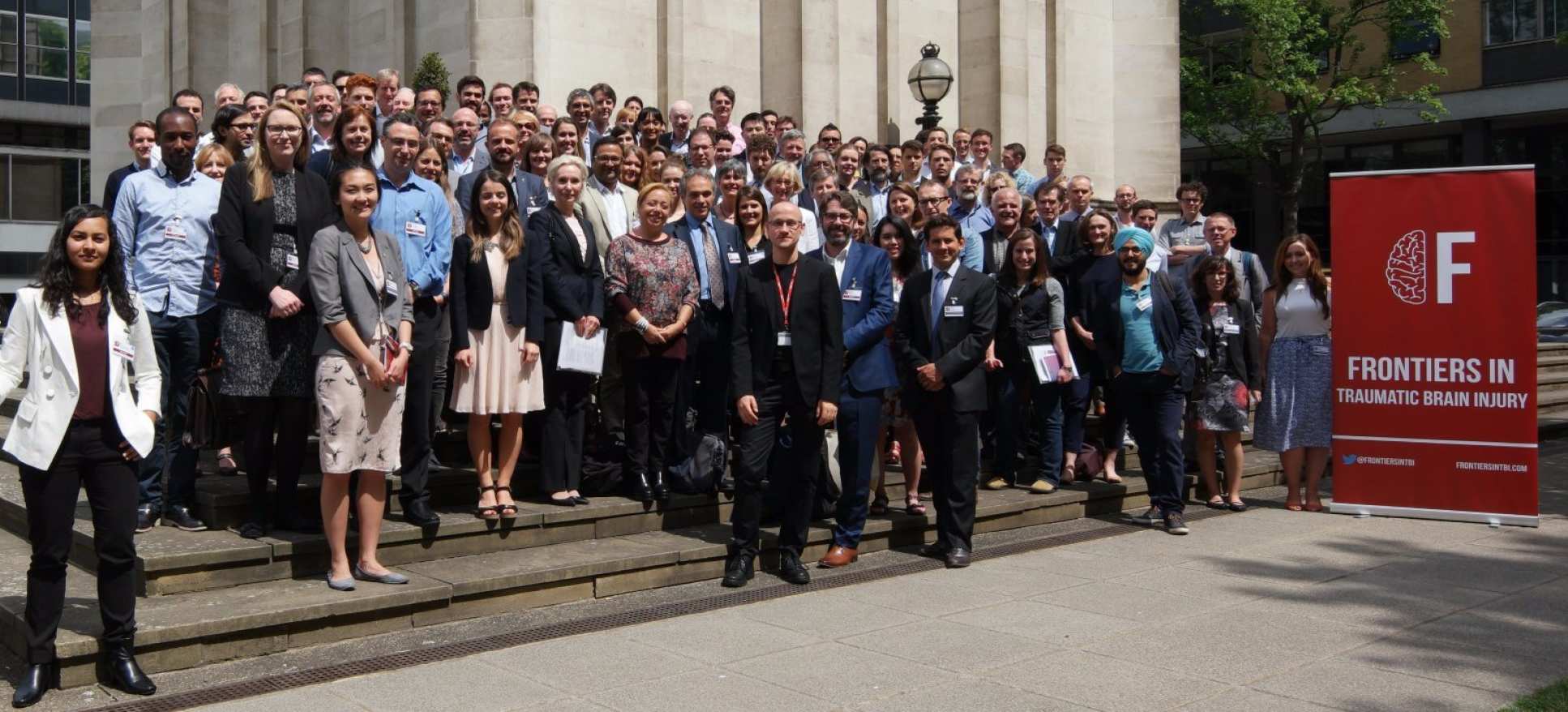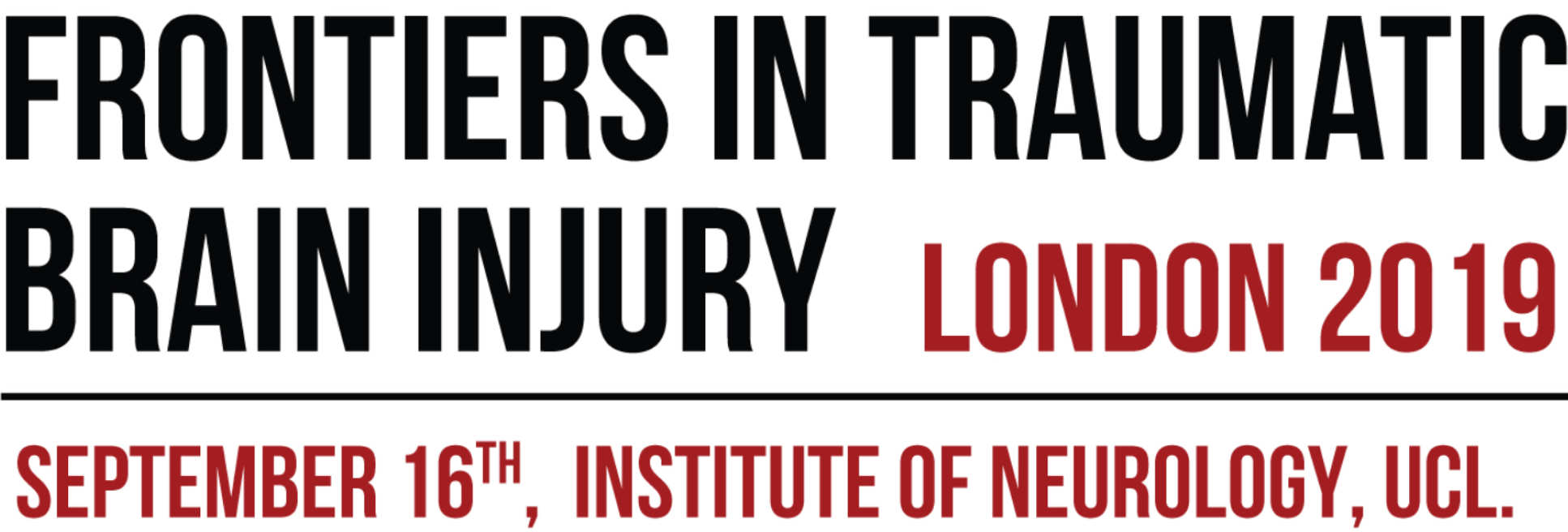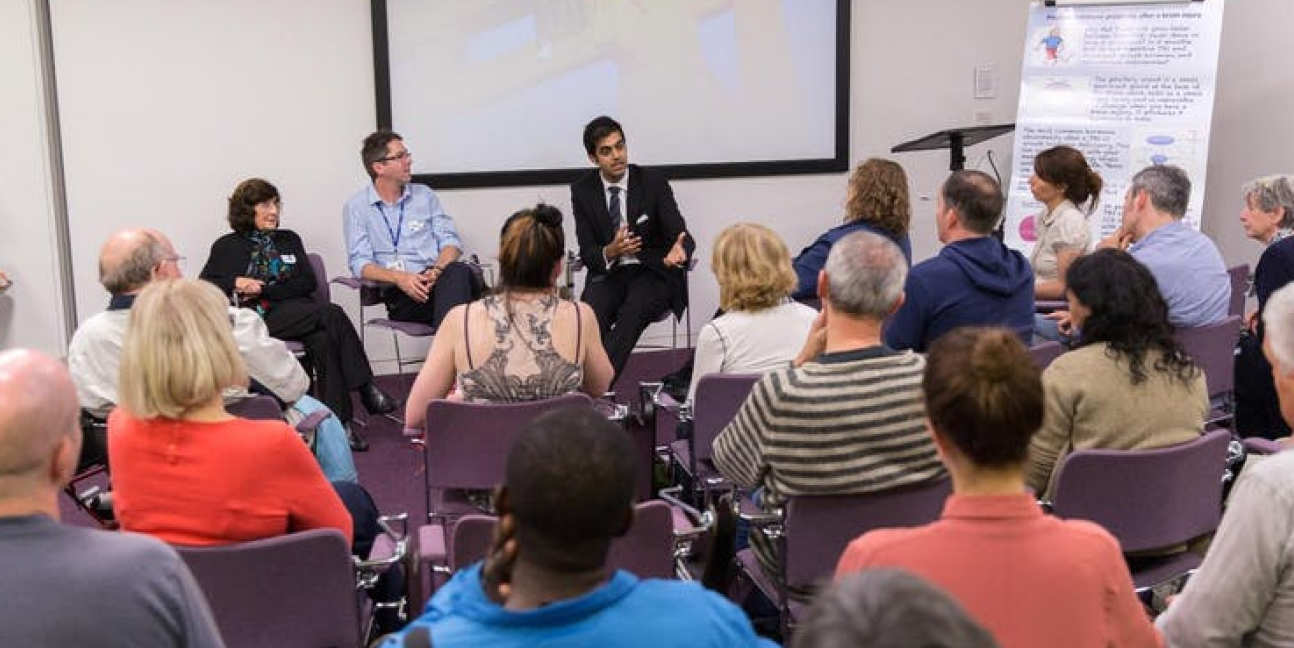Frontiers in Traumatic Brain Injury was back on the 5th and 6th of July for its second showing in London. Following on from the success of the inaugural Frontiers in TBI (FITBI) conference in 2017, the 2nd FITBI conference was held on the 5th and 6th of July at Imperial College London. The intimately sized conference featured a broad scope of topics to attempt to cover scientific advances into the fundamental understanding of traumatic brain injury and its clinical management.
Professor David Sharp gave the welcoming address and chaired the first session. We had the pleasure of Dr Guy Leschziner discussing sleep disorder after TBI, which was followed by Professor Matthew Walker who gave an overview of epilepsy after TBI. This was topped off by Dr Naomi Deakin who spoke about her experience working in motorsports and the future directions of investigations of mild TBI in this area.
After coffee, the conference was split into parallel sessions discussing acute management after TBI (Prof. Mark Wilson, Dr Hadie Adams, Dr Guido Bertolini) and Computational & Cognitive neuroscience (Dr Mazdak Ghajari, Dr James Cole, Dr Sara De Simoni). With great feedback from both sessions, we broke for lunch and poster presentations from upcoming early-stage researchers.
One of the highlights of the conference was the punchy interactive debate between Professor Steven Gentleman and Professor Lee Goldstein on the topic of whether ‘We are on the brink of a CTE epidemic’, with the majority of audience members favouring a ‘No’. This was followed by a podium-presentation session featuring speakers selected from abstract submissions, acting as an excellent opportunity for early career researchers to showcase their latest work. We closed the day with an interesting collection of talks on the topic of disorders of consciousness (Dr Srivas Chennu, Dr Davinia Fernandes-Espejo and Dr Gregory Scott).
The second day started with the session ‘Frontiers in TBI’ with talks from Prof Lee Goldstein, Prof David Sharp and Dr Jon Whyte who covered leading research into CTE, precision medicine and non-pharmacological treatments of TBI. The morning talks were followed by parallel sessions in technological innovations (Dr Adam Hampshire, Dr Ari Ercole and Dr Lucia Li) and Neuropsychiatry and psychology (Dr Alan Carson, Prof Narinder Kapur and Dr Rob Forsyth).
Our second debate featured Dr Alan Carson and Professor David Sharp discussing whether or not symptoms which last longer than 3 months after a minor head trauma are usually due to functional symptoms or not. This was followed by a presentation from TBI survivor Ben Clench about his recently published book detailing his journey navigating life after TBI. After the announcement of our poster prize and presentation winners, the conferenced closed on discussions on the management of specific dysfunctions following a TBI, covering intracranial hypertension (Dr Angelos Kolias), vestibular dysfunction (Dr Barry Seemungal) and functional disorders (Dr Mark Edwards).
More information is available here.

 Frontiers in Traumatic Brain Injury is back on the 16th of September, in London. Following the successes of FiTBI in 2017 and 2018, which took place at Imperial College London, we have decided to host the event once again this year, showcasing the latest developments in the world of traumatic brain injury (TBI) research.
Frontiers in Traumatic Brain Injury is back on the 16th of September, in London. Following the successes of FiTBI in 2017 and 2018, which took place at Imperial College London, we have decided to host the event once again this year, showcasing the latest developments in the world of traumatic brain injury (TBI) research.

 Our 'Meet the Scientists' event returned on November 29 2018. The half-day, which is completely free to attend, featured tours of the Imperial College TBI research facility along with talks and demonstrations from researchers outlining the techniques we use and the sorts of questions we are trying to answer.
Our 'Meet the Scientists' event returned on November 29 2018. The half-day, which is completely free to attend, featured tours of the Imperial College TBI research facility along with talks and demonstrations from researchers outlining the techniques we use and the sorts of questions we are trying to answer.